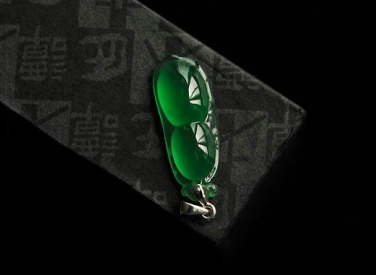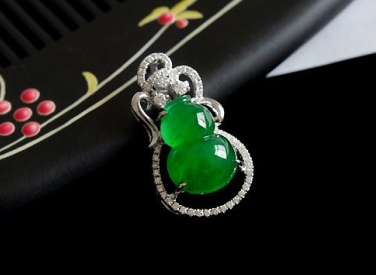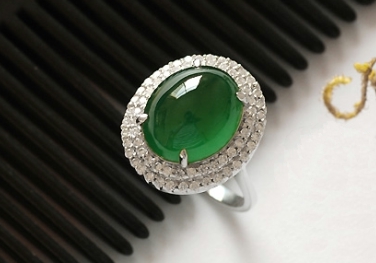|
|
 |
|
|
 |
 |
 |
|
Define Jade
|
|
|
 |
 |
|
Jade refers collectively to two different minerals ---
Jadeite and Nephrite.
Most Jade of gem value is Jadeite Burmese Jade.
Most valuable is the Imperial Jade, an emerald
green transparent jadeite from Burma.
|
|
|
In academic terms -- Jadeite and Nephrite have
|
|
|
different physical and chemical characteristics:
|
|
 |
|
|
|
|
Nephrite
|
Jadeite
|
|
Chemical composition
|
Ca2(Mg, Fe)5Si6O22(OH)
|
NaAISi2O6
|
|
Mineral composition
|
Amphibole Group
|
Pyroxene Group
|
|
Crystalline structure
|
fibrous
|
micro-granular
|
|
Hardness
|
6-6.5
|
6.5-7
|
|
Specific gravity
|
2.9-3.1
|
about 3.33
|
|
Refractive index
|
1.62
|
1.65-1.66
|
|
Polished surfaces
|
Smooth with a waxy sheen
|
Hard and lustrous
|
|
Color
|
Evenly distributed; translucent
white, dark green, black
|
Spotty or clustered distribution; white, grey, green
|
|
 |
 |
 |
|
 |
|
 |
|
|
In China, where jade has been treasured the most, there was only nephrite before the 18th century. The highly treasured pieces from that time are creamy white in color and uniformly translucent. Since the mid-18th century, jadeite has been imported from Burma (now Myanmar), and has become the most popular form of jade in China.
|
|
|
 |
|
 |
|
|
Besides in Burma, jadeite is also found in Japan, part of the former Soviet Union, Central America, and California. The actual color and the texture of the jadeite piece derives from the metallic element(s) it contains and the way the piece was formed geologically.Green jadeite, known as fei tsui in Chinese, seems to be used almost exclusively in jewelry-setting, and is the most popular type of jadeite.
|
|
|
|
 |
|
|
|